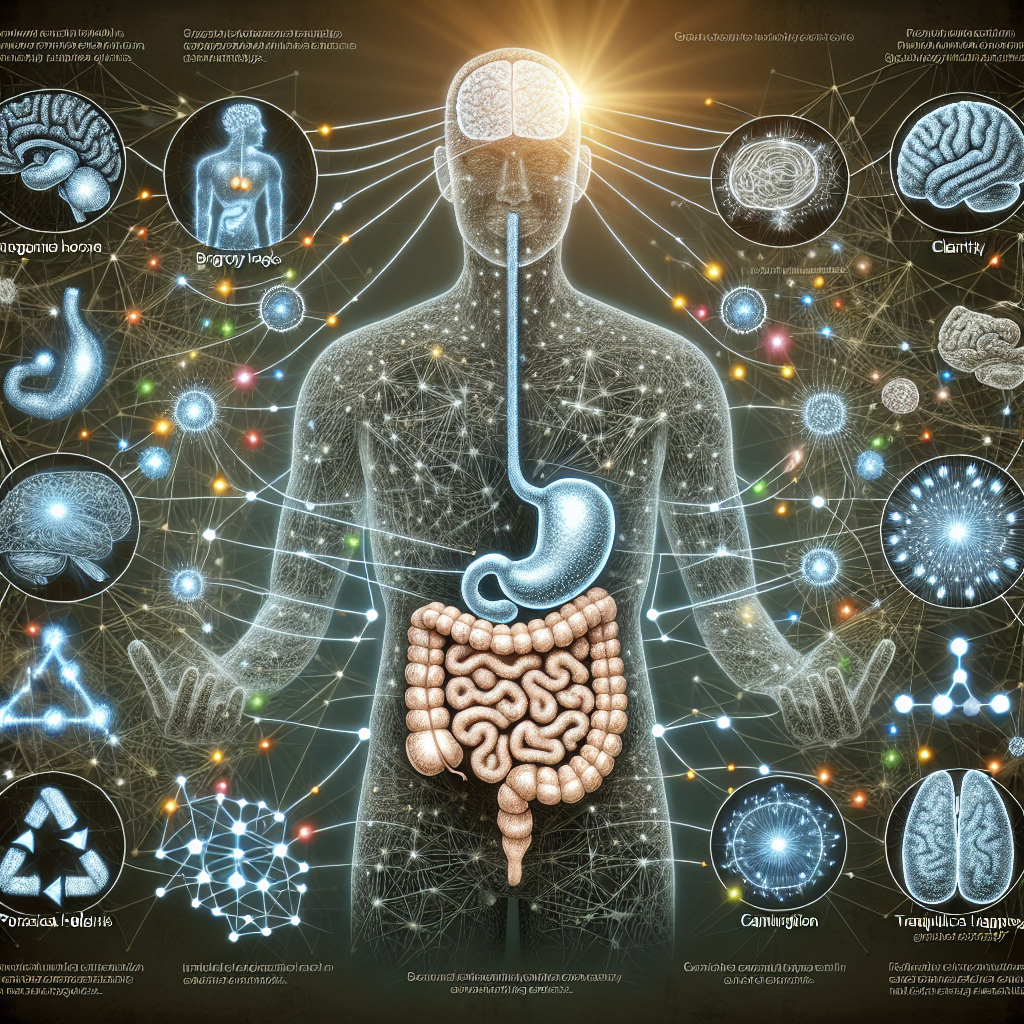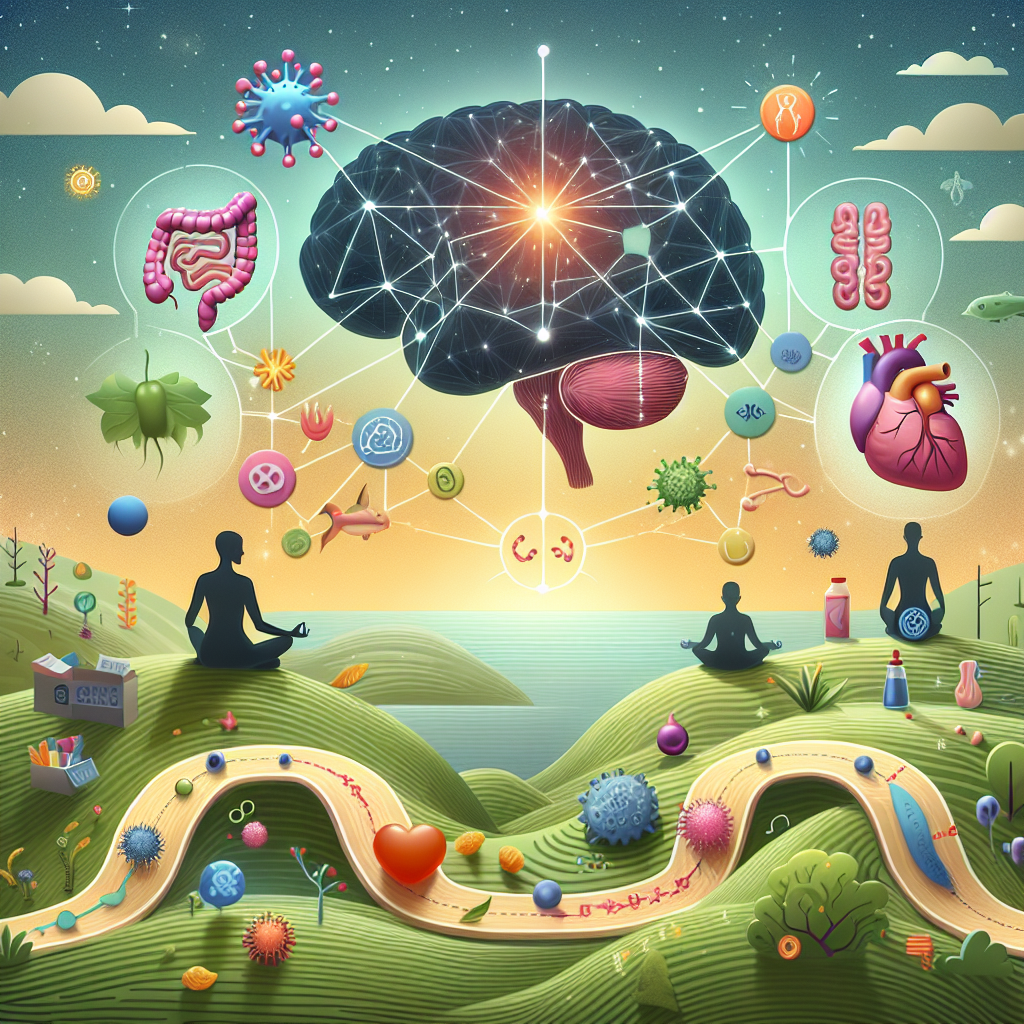Gut-Brain Connection: Impact on Mental and Physical Health

Discover more about the profound impact of the Gut-Brain Connection on your Mental and Physical Health. Uncover the secrets to a healthier, happier life by understanding this crucial relationship. Don’t wait, start your journey to vibrant vitality today! Click here to learn more.
Exploring the Gut-Brain Connection: Its Influence on Mental Health
The gut-brain connection is a fascinating area of study that has been gaining significant attention in recent years. This connection, also known as the gut-brain axis, is a bidirectional communication system between the gastrointestinal tract and the central nervous system. It is a complex network that not only regulates digestive processes but also has a profound impact on mental health.
The gut is often referred to as the “second brain” due to its extensive network of neurons and the production of neurotransmitters, chemicals that transmit signals between nerve cells. These neurotransmitters, including serotonin and dopamine, play a crucial role in regulating mood and emotions. Interestingly, about 90% of the body’s serotonin, a neurotransmitter often associated with feelings of happiness and well-being, is produced in the gut.
The gut-brain connection operates through various mechanisms, including the vagus nerve, immune system, and gut microbiota. The vagus nerve is a primary route of communication, transmitting information from the gut to the brain and vice versa. The immune system, on the other hand, communicates with the brain through cytokines, proteins that play a critical role in cell signaling. Lastly, the gut microbiota, the trillions of bacteria residing in our gut, interact with the brain through various metabolic and neuroactive compounds.
Emerging research suggests that disruptions in the gut-brain axis may contribute to a range of mental health disorders, including anxiety, depression, and autism spectrum disorder. For instance, individuals with irritable bowel syndrome (IBS), a disorder characterized by changes in gut function, often experience anxiety and depression. This suggests a potential link between gut health and mental well-being.
Moreover, studies have shown that the gut microbiota composition can influence behavior and mental health. For example, certain strains of bacteria have been found to produce neurotransmitters, influencing mood and cognitive function. Additionally, alterations in the gut microbiota have been associated with neurodevelopmental disorders, including autism and attention deficit hyperactivity disorder (ADHD).
The gut-brain connection also has implications for stress management. Stress can alter the gut microbiota, leading to changes in gut function and potentially contributing to the development of gastrointestinal disorders. Conversely, a healthy gut microbiota can help regulate the body’s stress response, highlighting the potential role of probiotics and prebiotics in managing stress and promoting mental health.
In conclusion, the gut-brain connection is a complex and dynamic system that plays a crucial role in both mental and physical health. Understanding this connection can provide valuable insights into the pathogenesis of various mental health disorders and pave the way for novel therapeutic strategies. For instance, modulating the gut microbiota through diet, probiotics, and prebiotics could potentially serve as an effective approach to improve mental health. However, more research is needed to fully understand the intricacies of the gut-brain axis and to translate these findings into clinical practice.
The Role of the Gut-Brain Axis in Maintaining Physical Health

The gut-brain connection, also known as the gut-brain axis, is a complex, bidirectional communication system that links the emotional and cognitive centers of the brain with peripheral intestinal functions. Recent advances in research have highlighted the critical role this connection plays in maintaining physical health.
The gut-brain axis involves the central nervous system, the enteric nervous system, and the gastrointestinal tract, all of which communicate with each other to maintain normal gut function. This communication is facilitated by various signaling mechanisms, including neural, hormonal, and immune pathways. The gut microbiota, the diverse community of microorganisms living in our intestines, also plays a crucial role in this communication network.
The gut microbiota influences the gut-brain axis by producing various substances, including short-chain fatty acids, neurotransmitters, and other metabolites. These substances can affect brain function and behavior. For instance, certain gut bacteria can produce neurotransmitters like serotonin and dopamine, which play key roles in mood regulation.
The gut-brain axis is not only essential for maintaining gut function but also has a significant impact on physical health. It plays a crucial role in the regulation of the immune system, metabolism, and stress response. For instance, the gut microbiota can influence the immune system by modulating the production of cytokines, proteins that play a crucial role in immune responses. This can affect the body’s susceptibility to various diseases, including autoimmune disorders and infections.
Moreover, the gut-brain axis plays a key role in metabolism. The gut microbiota can influence metabolic processes by affecting the absorption and utilization of nutrients. This can impact body weight and the risk of metabolic disorders like obesity and diabetes.
The gut-brain axis also plays a crucial role in the body’s response to stress. The brain can send signals to the gut in response to stress, leading to changes in gut function. Conversely, changes in the gut microbiota can affect the brain’s stress response. This bidirectional communication can influence the body’s ability to cope with stress, which can have significant implications for physical health.
However, disruptions in the gut-brain axis can lead to various health problems. For instance, alterations in the gut microbiota, known as dysbiosis, can disrupt the gut-brain communication, leading to changes in brain function and behavior. This can contribute to the development of various mental health disorders, including anxiety and depression.
Moreover, dysbiosis can also affect physical health. It can lead to immune dysregulation, metabolic disorders, and increased susceptibility to infections. Therefore, maintaining a healthy gut-brain axis is crucial for both mental and physical health.
In conclusion, the gut-brain axis plays a critical role in maintaining physical health. It regulates the immune system, metabolism, and stress response, and its disruption can lead to various health problems. Therefore, understanding the gut-brain connection and its impact on health can provide new insights into the prevention and treatment of various diseases. Moreover, it can pave the way for novel therapeutic strategies targeting the gut microbiota and the gut-brain axis.
Decoding the Gut-Brain Connection: Its Impact on Mental and Physical Well-being
The gut-brain connection is a fascinating and complex relationship that has been the subject of extensive research in recent years. This connection, also known as the gut-brain axis, is a bidirectional communication system that links the central nervous system (the brain and spinal cord) with the enteric nervous system (the network of neurons controlling the gastrointestinal tract). This intricate system plays a crucial role in maintaining our mental and physical health.
The gut-brain axis operates through various mechanisms, including neural, hormonal, and immune pathways. The vagus nerve, the longest cranial nerve, is a key player in this communication system. It transmits information from the gut to the brain and vice versa, influencing a wide range of functions such as mood, stress response, and even memory.
Moreover, the gut is home to trillions of microorganisms, collectively known as the gut microbiota. These microorganisms interact with the gut-brain axis, influencing its function and thereby impacting our mental and physical health. For instance, certain species of bacteria in the gut can produce neurotransmitters, the chemical messengers of the nervous system. These neurotransmitters can then influence brain function and behavior.
Emerging research suggests that an imbalance in the gut microbiota, known as dysbiosis, can disrupt the gut-brain axis, potentially leading to various health issues. These include gastrointestinal disorders like irritable bowel syndrome (IBS) and inflammatory bowel disease (IBD), as well as mental health conditions such as anxiety and depression.
For example, studies have shown that individuals with IBS often experience higher levels of anxiety and depression. This could be due to the altered gut-brain communication in these individuals, leading to increased sensitivity to pain and discomfort in the gut, which in turn can exacerbate mental health symptoms.
Similarly, research has found a link between gut microbiota and mood disorders. Certain types of bacteria in the gut have been associated with lower risk of depression, suggesting that the gut microbiota could potentially be harnessed for therapeutic purposes.
However, it’s important to note that while these findings are promising, much of the research in this field is still in its early stages. More studies are needed to fully understand the complex relationship between the gut and the brain, and to develop effective treatments based on this knowledge.
In the meantime, maintaining a healthy gut could potentially benefit mental health. This can be achieved through a balanced diet rich in fiber and fermented foods, regular exercise, adequate sleep, and stress management. Probiotics, which are beneficial bacteria, may also help to support a healthy gut microbiota, although more research is needed to determine their effectiveness.
In conclusion, the gut-brain connection is a powerful and intricate system that plays a crucial role in our mental and physical health. Understanding this connection could open up new avenues for preventing and treating a wide range of health conditions. As research in this field continues to evolve, it’s clear that the health of our gut is more important than ever for our overall well-being.